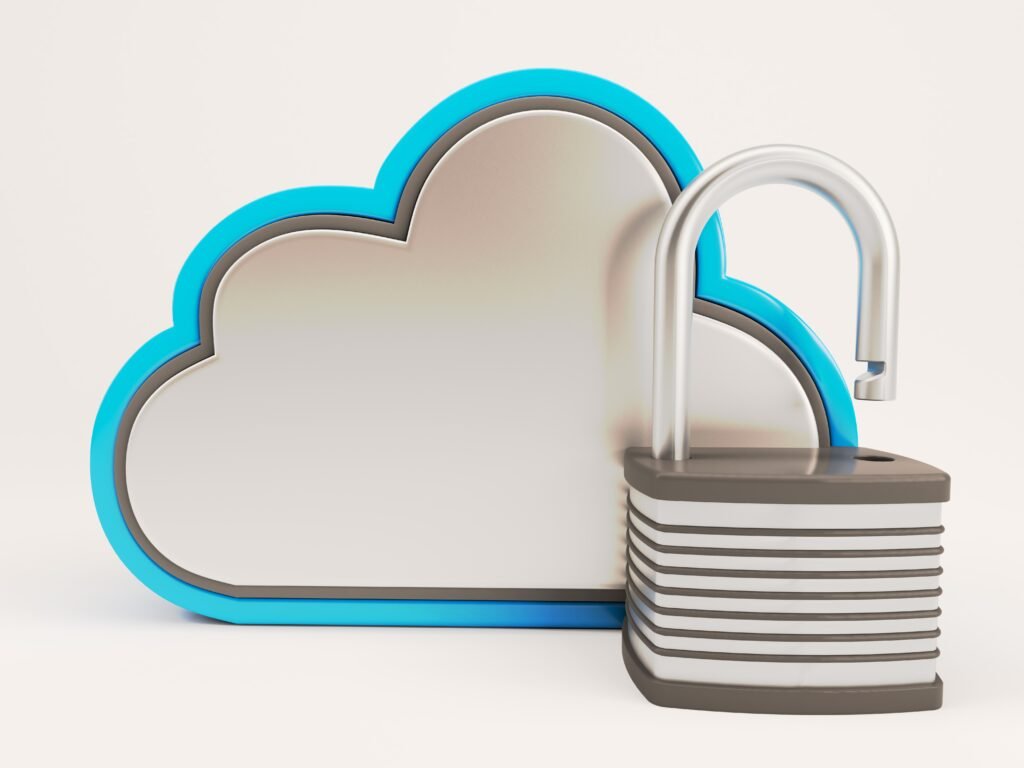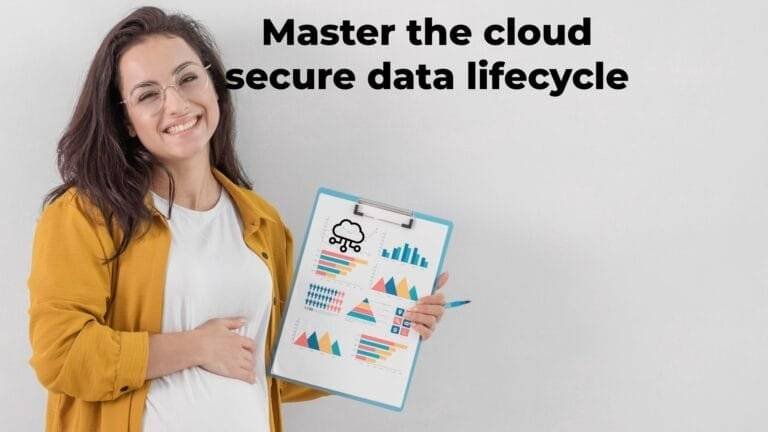Which Private Cloud Option Offers Highest Security?
Trying to pick the right private cloud can be like wandering through a huge castle full of safes, each promising to keep your most important stuff, your data, and apps, secure and sound. But here’s the thing, not every security is super strong. Some are like iron fortresses with fancy locks, and some are just good ol’ strongboxes with a hefty lock. Now, in the world of private clouds, this one option stands out. It’s like the king of castles, with the tallest towers and the widest moats, if we’re talking about keeping things secure. That’s the main thing we’re diving into today.
Picking the right private cloud is like finding the safest place for your online treasures. It’s not just about having tough passwords or secret codes; it’s about the whole package – keeping the place locked tight, making sure your stuff stays as it is, and being picky about who gets in. We will cut through all the technology talk and fancy ads to spot the real heroes of cloud security. So, get ready, and let’s start our adventure to figure out which private cloud is the superhero fortress of the online world.
The Security Spectrum in Private Clouds
In the world of private cloud options, the range of security is as big and different as the stars in the sky. Think of this range as a scale, going from simple, basic security steps to super-secure strongholds that can keep out even the trickiest hackers. On one side, you have private clouds with just enough security, like a strong lock on your door. These are okay for stuff that’s not too secret, and they offer things like code scrambling, simple rules for who gets in, and basic security checks.
As we move up the scale, the security gets tougher, with fancier technology and tricks. We’re talking about needing more than one proof to get in, really smart code scrambling, and systems that can spot dangers right away. These private clouds don’t just have a lock; they’ve got alarms, sensors, and maybe even a fierce dog guarding the place.
Getting that “best” security isn’t about one perfect solution for everyone; it’s all about what works best for you. What kind of information you’re keeping secure, the rules you need to follow, and how much risk you’re okay with – all these things are super important in figuring out what kind of security you need. So, as we dive into finding out which private cloud is the most secure, keep in mind, that we’re on the lookout for the one that not only offers the best security out there but also fits just right with what you specifically need.
Core Components of Private Cloud Security
When we look closer at private cloud security, we see it’s built on a bunch of key parts. These aren’t just complicated words used in meetings; they’re the real deal, the foundation that keeps the whole security system strong. Let’s take them apart and see what they’re all about, okay?
First, let’s talk about Data Encryption. Imagine locking your data in a super secure safe, within another safe. Whether your data is just sitting there or moving around, encryption scrambles it into a secret code. Only people with the special key can understand this code.
Next up are Access Controls. Imagine this as the VIP list for a fancy party. Only folks on this list (who have the right passwords and such) can get through the exclusive entrance. This means setting up extra checks like codes sent to your phone and making sure only certain people can get to certain parts of your data.
Then there’s Network Security, the big protective circle around everything. It’s like having a moat around a castle. With things like firewalls and secure internet tunnels (VPNs), it’s all about keeping the attackers out and making sure only the right people can get in.
We can’t forget Physical Security. Even though we’re talking about the “cloud,” the servers that hold your data are actually in a real place. Keeping these servers secure is super important for you. This means using things like fingerprint scans to get into the building and cameras watching all the time, plus making sure disasters like fires or floods won’t wreck everything.
Lastly, there’s Compliance and Governance. This is like having a group of wise advisors making sure everything follows the rules. Whether it’s privacy laws like GDPR or health information rules like HIPAA, this part is all about making sure your cloud setup respects all the legal stuff that applies to your work.
All these parts come together to create a really strong and detailed security net. As we look into which private cloud gives you the best protection, it’s very important to know about these basic elements. They’re like the foundation stones for building the most secure private clouds, making sure your online world stays secure and sound.
Top Contenders for the Security Crown

As we delve deeper into our search for the best secure private cloud, some big players pop up, all competing to be the top dog in security. These aren’t just run-of-the-mill options; they’re the best of the best in the private cloud game, with special features that make them stand out when it comes to keeping things secure.
First up, we’ve got VMware’s vCloud Suite. Think of it as the trusty, experienced knight in armor, a favorite among big companies. VMware isn’t just about having a solid private cloud; it fits right in with what you already have in your data center, bringing along really strong security stuff like super-detailed network security and top-level encryption.
Next, there’s Microsoft’s Azure Stack. Imagine it as the handy, flexible helper, always ready to jump in and help, no matter what’s needed. Azure Stack brings the goodies of Microsoft’s Azure cloud right to your place, with a bunch of familiar tools and services. Its connection to Microsoft’s big security setup and its follow-the-rules approach to lots of security standards make it a strong player.
Then comes OpenStack, kind of like the hero of the people, the Robin Hood of private clouds. It’s open-source, meaning there’s a whole world of developers out there making its security better all the time. With strong controls on who gets in and solid network security, OpenStack is all about giving you a system you can tweak to be as secure as you need.
Last but not least is IBM Cloud Private, the wise old guide, a secure place for your super-secret data and apps. IBM knows a ton about keeping things secure, and that shows in their private cloud. We’re talking about lock-tight data encryption, smart ways to manage who gets access, and a big focus on making sure you’re following all the rules.
Each of these big names has its own special thing going for it, from VMware’s knack for fitting right into Azure Stack’s user-friendly vibe, OpenStack’s ability to bend and twist as needed, and IBM’s long history of being super reliable. The top spot for being the safest private cloud is still anyone’s game, and these players are neck and neck in the race. As we look at what each one’s best at, it’s obvious that picking the right one comes down to what you specifically need, what you like, and the particular hurdles you face in your online world.
The Gold Standard- Which Private Cloud Reigns Supreme?
After all the competition in the world of private cloud security, we’re left with one big question: Who takes the top spot? It’s a crucial time as we look for the best of the best, the private cloud that doesn’t just make big promises but gives top-level security.
But finding the “best” isn’t as simple as just picking one winner. Being the best in private cloud security isn’t about finding a one-size-fits-all hero. It’s more about what’s the perfect fit for your situation. Every organization is different, with its kind of data, rules it needs to follow, and specific security needs. So, the best private cloud for you is the one that fits your needs the best, lighting up your particular setup the brightest.
For businesses really into VMware and looking for a smooth fit and strong security, VMware’s vCloud Suite is like a hero for you. It’s got all the security bases covered and works well with what you already have, making it a great pick for beefing up your current setup.
Then, for those who like sticking with what’s familiar and want something that works well with lots of different services, Microsoft’s Azure Stack could be the winner. It brings Azure’s security stuff into your own space, which is awesome if you’re already using Microsoft stuff.
For the trailblazers and creative types who love to tweak and customize, OpenStack is like a big open ocean, ready for you to make it exactly what you need, security-wise. Since it’s open-source, you can make it your own if you’re up for diving into the details.
And IBM Cloud Private is there for those who take security super seriously and don’t want to compromise, especially with really sensitive information. IBM has a long history of trust and new security tricks up its sleeve, making it a wise guide for those who want the best security.
In the end, the best security in private clouds isn’t something that works for everyone, the same way. It’s more like a custom-made suit of armor, made just for your business. The real winner is finding the perfect match between what your business needs and what these big cloud companies offer. After looking at all the options and what they bring to the table, one thing’s for sure: the secret to being the best in cloud security is knowing exactly what challenges your business faces and picking the provider that seems like it’s made just for your journey.
Real-world Applications- Where High Security is Non-negotiable?
In the huge world of today’s online spaces, there are some areas where there’s no room for mistakes in keeping things secure. In these places, data isn’t just numbers or information; it’s very important for how everything works, holds big secrets, and protects people’s privacy. In these areas, having top-level security isn’t just something nice to have; it’s essential.
Healthcare stands out because patient information and health details need the highest level of secrecy and security. Here, private clouds have to be very strong and also follow strict rules like HIPAA. The risks are huge, and any security slip-up could be serious.
In finance and banking, keeping things secure is key. Everything from transaction details to personal money information must be kept secure and private. Private clouds in this area need to be not just secure, but also tough enough to stand up to really tricky cyber attacks, so that customers all over can trust them.
Then there’s government and defense, where there’s no room for security error. Things like national security, government messages, and sensitive information need the best security. Private clouds here have to be equipped with the best data protection and defenses against cyber attacks.
And let’s not forget about critical infrastructure, like utilities, energy, and transport. A security problem here could lead to huge problems, like power outages or water issues. Private clouds used in these areas need to be incredibly secure to make sure vital services keep running smoothly.
In all these areas, picking a private cloud isn’t just about wanting good security; it’s about needing the absolute best. Whether it’s VMware’s all-around strong security, Azure Stack’s ability to work well with other systems, OpenStack’s ability to be customized just right, or IBM Cloud Private’s long history of being reliable, they’re all looked at really closely because of these super strict security needs. The way these clouds are used in these very important fields shows how crucial it is to choose a private cloud that doesn’t just talk a big game about security but delivers big time, giving people peace of mind in situations where messing up isn’t an option.
Choosing Wisely- Factors to Consider
Choosing the right private cloud for your online stuff can feel as tricky as steering a boat through a wild storm. But, if you focus on a few important things, you can find your way to smoother sailing and pick a solution that fits you perfectly. Here’s what you should think about:
- 1. Compatibility and Integration: The private cloud you pick should work well with the systems and apps you’re already using. It’s like bringing a new player onto your team; they need to gel with the group right away, helping out from the start.
- 2. Scalability: As your business gets bigger, your private cloud should be able to keep up, just like a reliable ship that can be made bigger and better to go further and carry more. Make sure it can adjust to your needs, getting bigger or smaller without losing any of its security.
- 3. Compliance and Regulatory Requirements: Depending on what business you’re in, there might be a lot of rules to follow. Your private cloud needs to not only stick to these rules now but also be able to handle any new rules that might come up.
- 4. Customization and Control: How much do you want to tweak and control your setup? Some folks might want to customize every little detail, like building a castle from scratch, while others might be okay with a ready-to-go option that still lets them make some changes.
- 5. Cost Considerations: Security is very important for you, but you can’t forget about the costs. Balance how much you’re spending with what you’re getting, thinking about both the upfront costs and the value over time. You want to get the most out of your money without cutting corners on keeping things secure.
- 6. Support and Services: Finally, think about the support and help you’ll get. When things get tough, you want a solid team ready to back you up and help you through any challenges.
By thinking about these things, you can find a private cloud that’s not just super secure but also fits just right with what your organization needs and wants to achieve. It’s like picking the best ship for a risky journey; with the perfect one, you can sail through even the toughest waters feeling sure and steady.
In conclusion
On our trip through the big and tricky world of private cloud options, we’ve gone from getting the big picture of security options to looking closely at the key parts that make these online strongholds so secure. We’ve checked out the main players fighting to be the top in security, each with its special perks, and looked at situations where the best security is necessary, not just nice to have. With a good understanding of what to look for, choosing the right cloud isn’t about finding a one-size-fits-all answer but finding what’s just right for your particular needs. Searching for the best security in a private cloud is a detailed task. You need to weigh up strong security features, sticking to rules, the ability to grow, and how much it all costs. In the end, the best option isn’t just the safest one overall, but the one that fits perfectly with your organization’s own needs, making sure your online valuables are well-protected in this constantly changing world of cyber risks.
FAQs
1. What makes a private cloud option highly secure?
Highly secure private clouds integrate advanced encryption, robust access controls, comprehensive compliance standards, and real-time threat detection to safeguard data and applications.
2. Can the security level of a private cloud be customized?
Yes, many private cloud solutions offer customizable security features, allowing organizations to tailor the security level to their specific needs and regulatory requirements.
3. How does compliance play a role in private cloud security?
Compliance ensures that the private cloud adheres to industry-specific regulations and standards, enhancing data protection and privacy measures essential for sectors like healthcare and finance.
4. What is the importance of scalability in a secure private cloud?
Scalability ensures that the private cloud can adapt to growing security needs, allowing for seamless expansion or contraction without compromising on security protocols.
5. How do I know if a private cloud option is compatible with my existing infrastructure?
Evaluating a private cloud’s integration capabilities with your current systems is crucial. Look for solutions that offer seamless compatibility or provide tools and services to bridge any gaps.







